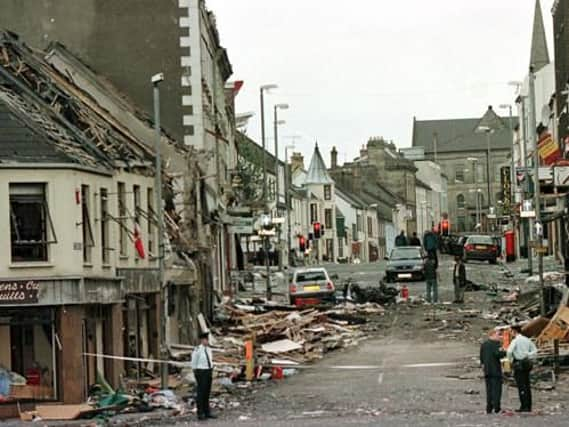Omagh bomb anniversary: Bishop McKeown observes 'combatants fight but civilians die'


Bishop McKeown made the comments in the Sacred Heart Church in Omagh on Tuesday evening two decades after a bomb exploded by republicans opposed to the Belfast Agreement killed 29 civilians in the town.
"We gather this evening on the eve of the 20th anniversary of that terrible day in 1998, which claimed so many lives in Omagh," he said.
Advertisement
Hide AdAdvertisement
Hide Ad"The bomb that killed young and old also scarred so many others in body and in mind. Those scars, those memories, those losses will never go away. Many people continue to limp through life because of the brutal actions of others.
"For this town, something changed forever that day. And this community has found ways of remembering their loved ones in a quiet and dignified way," he added.
Bishop McKeown paid tribute to the fortitude and example shown by the survivors of the bombing and the citizens of Omagh generally.
"Don’t underestimate what you have done," he said. "Your work here is not just important for this area."
Advertisement
Hide AdAdvertisement
Hide AdThe Derry prelate also took the opportunity to remark how those who suffer most during violent conflicts tend to be the innocents.
"Your ways of remembering and honouring have pointed to the fact that, in every conflict, it mostly innocent civilians and not combatants who do the dying. Your memorial here is a monument to all the innocent who were torn from us by violence in our community.
"Combatants do fighting but it is mostly civilians who do the dying. Some causes may be worth dying for. No cause is worth killing for. Any story we try to tell about our conflicts has to weep for the past and never glorify any of it," he said.